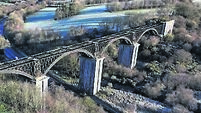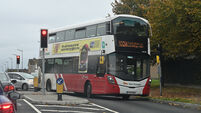Camera phone porn - Register to curb abuse necessary
As witnessed in the scandalous circulation of lewd images of a schoolgirl to hundreds of people in Cork, Limerick and Kerry, parents have every right to be alarmed at the frightening opportunities for paedophiles and others to take and transmit pornographic pictures by camera phone.
Even more scary is the realisation that children can take and send images of themselves over a system that is wide open to breaches of moral and ethical precepts.
Like it or not, there are now compelling arguments for mobile network operators to establish a register of every camera phone purchased in this country.
Arguably, that is the only sure way to prevent abuse of this revolutionary technology by people who see it as a means of fuelling their perverse fantasies.
Given the obvious potential for abuse, there will be little public sympathy for those who oppose the concept of a register on grounds that it would amount to an invasion of a person's civil liberty. Predictably, secondary school pupils have come out against the idea of their parents scrutinising camera phones. But given the gravity of the scenario, their concerns are misplaced.
It goes without saying that most teenagers use camera phones for the sheer novelty and fun involved in this futuristic technology and not for taking or distributing pornography.
But, as evidenced by the shock dissemination of schoolgirl pictures, that in no way obviates the case for a national register containing names and addresses of people who purchase camera phones.
To put the civil rights question in perspective, nobody objects at having to provide personal data when opening a bank account. Therefore, a scenario where genuine issues of child safety and public morality arise demands that camera phones be registered.
Arguably, if the owners have nothing to hide, then they should have no objection to being included in a national register.
In the wrong hands, a smart camera is tantamount to a licence to traffic in pornography. Ever mindful of the Big Brother syndrome and the risks involved in over-regulation, access to a national register should be strictly confidential and confined to the gardaí.
If network companies have the technology to track calls, there should be no hesitation about putting the system into effect here.
Timely warnings of the dangers inherent in potential abuse of the new generation of mobile phones have already come from COPINE, the UCC-based world leaders in tracking paedophiles on the internet, and also from the British children's charity, NCH.
According to NCH, the issues of child safety on the net become much more complex when the internet goes on the street.
As gardaí continue to investigate the circulation of explicitly sexual pictures of a teenage girl, allegedly from the Cork suburb of Glanmire, it is patently obvious that the easier it is to transmit pornography the more difficult it is to prevent or detect it.
Nonetheless, the industry has a duty to respond positively to Justice Minister Michael McDowell's call for guidelines on how to tackle this problem. If that fails, the Government should legislate to compel the networks to take action.
If the images in the present scandal were distributed as a joke, it was a very sick joke indeed. Those responsible for the grave offence of taking and transmitting lewd pictures must face the full rigours of the law.





